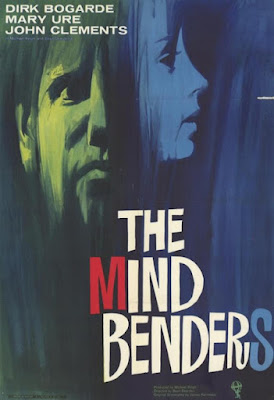Inspired by the now defunct Film Comment "Moments Out of Time" series and the great Roger Ebert's year end recap, this Moments of the Year list (now in its 24th edition) represents indelible moments of my film-going year. It can be a line of dialogue, a glance, a camera movement or a mood, but they're all wondrous examples of a filmmaker and audience connecting emotionally.
The long shot holding on the face of a jockey (Clifton Collins Jr) as he starts and finishes a race. The range of emotions curbed by splotches of dirt being kicked up into his face don’t lessen his array of feelings. “Jockey”
A young girl munching precociously on chips in the backseat of a car and then her small arm protruding into the frame with a juice box for her mother to drink while she drives “Petite Maman”
The diner scene between Jessica Chastain and “The Good Nurse” (Eddie Redmayne) as she tries to gently coax a confession from him. The unease slowly builds
"I don’t even know what you make at the factory!” “You’ll know what we make at the factory, when you work at the factory!” The comic line reading of the year by Toby Huss in “Weird: The Al Yankovic Story”
The dance title sequence. “After Yang”
Pretty much any line reading of Andrew Scott in “Catherine Called Birdy”
From a comfortable bedside reading to a tortured wounded soldier screaming. Just one of the many sublime (and heartbreaking) transitions in Terence Davies’ exploration of self identity in “Benediction”
A woman (pleading?) saying that the woman (Dolly de Leon) inching up behind her with a rock can work equally in their new household. “Triangle of Sadness”
“Everything Everywhere All At Once” and the Wong Kar Wai inspired wet, moonlit alley conversation between Evelyn (Michelle Yeoh) and Waymond (Ke Huy Quan). Both are dressed to the nines, but the spare emotion expressed between them is heartbreaking
“Montana Story” and the performance of Eugene Brave Rock as a Native American car seller. It's a complex moment in the film. Can we trust him?
Colin Farrell and his imitation of Werner Herzog. “After Yang”
“She Said” and the numerous shots of tense bodies carefully poised around a speakerphone intercom
The first meeting between Jakob (Tom Schilling) and Cornelia (Saskia Rosendahl) in “Fabian: Going to the Dogs” as she emerges as a shadowy figure bathed in blue light behind, and the quick succession of future images that will mark their torrid love affair. Perhaps the most romantic moment all year
A man hitting on two women at the bar as Modjo plays and his line of “I have a lot of money. A lot of money….” and they perk up to him. “Triangle of Sadness”
The waves taking a baby’s body with it. “Bardo, False Chronicles of a Handful of Truths”
An empty bed. "Sr."
The needle drop of ethereal music as a young girl floats on a boat. "Petite Maman"
Strobe lights on a dance floor. A father and daughter oscillating in time. A long walk down an airport hallway and then out a door. The gutting final few minutes of Charlotte Wells' brilliant debut "Aftersun"
